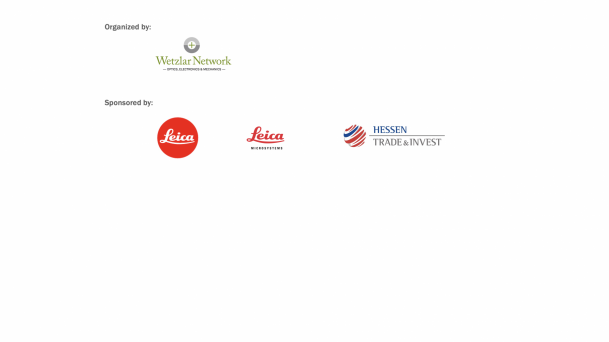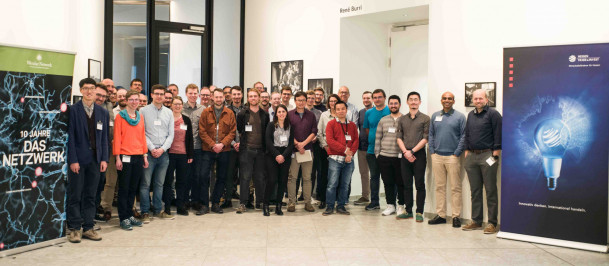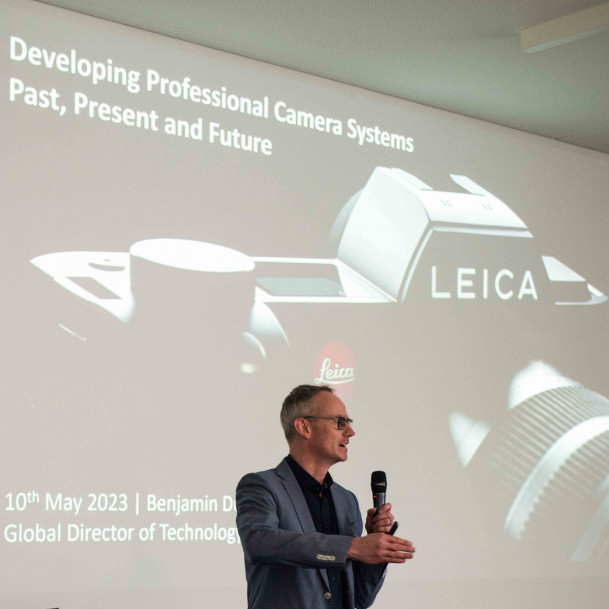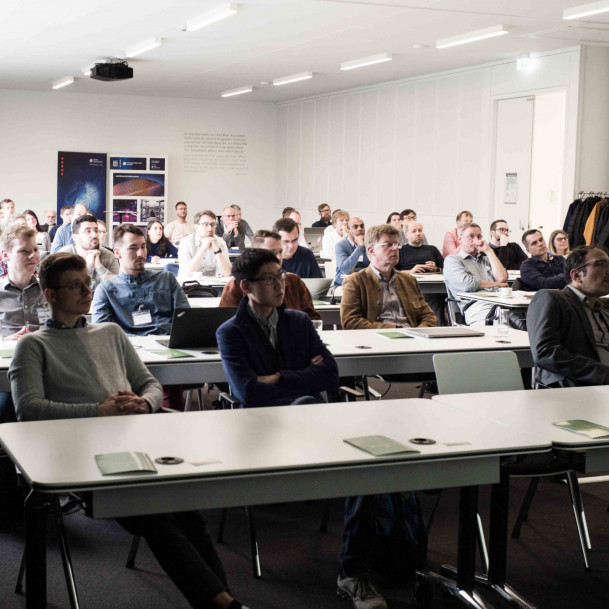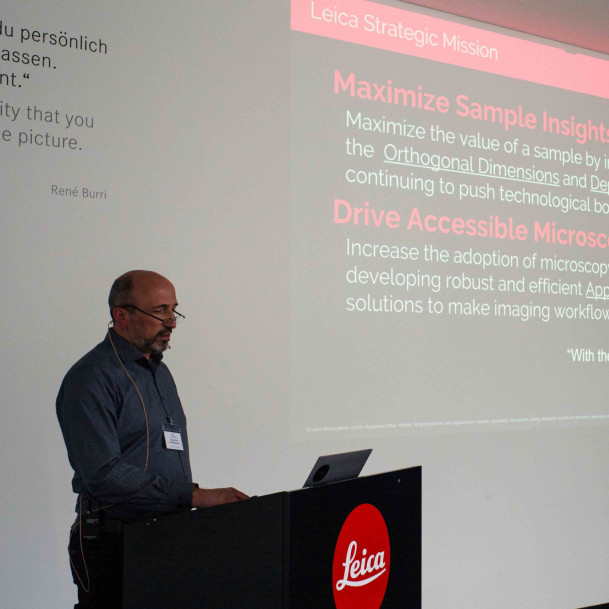2nd Computational Imaging Forum
The 2nd Computational Imaging Forum took place in Wetzlar on May 10 and 11, 2023. International experts presente breakthrough ideas and latest research and developments. For the first time, applications from camera development and microscopy were evaluated.
At the 2nd Computational Imaging Forum, it was again evident that it is the topic of the hour, enriched by the ubiquitous discussions about the use of AI in imaging technologies. Is it going too fast? How does one deal with it? What about the relevance and evidence of computational imaging? Last but not least: What potential does this open up for camera development and microscopy?
Around 60 participants from a wide range of fields accepted the invitation to the 2nd Computational Imaging Forum in the Leica World at Leitz Park Wetzlar. 16 international speakers from the USA, Hong Kong, Ireland, Great Britain and Germany, among others, reported on the latest results and experiences in the field of computational imaging. The topics ranged from image enhancement and interpretation, new display techniques (holographic displays), data handling and forward-looking compression methods to the use of AI and neural networks.
As host, so to speak, Dr. Benjamin Dück from Leica Camera opened the top-class forum with a presentation on the history, present and future of camera development. While the focus of the 1st Computational Imaging Forum was on camera applications, this time applications from camera development and microscopy were evaluated. It became apparent that new microscopy methods (e.g. light sheet or light field technology or their combination) only lead to new insights through computational imaging (CI). For example, Prof. Dr. Jan Huisken from the University of Göttingen presented compact, modular light sheet microscopes for remote smart microscopy. Sebastian Tille from Leica Microsystems presented innovations for the human health sector.
In all fields of application, the general tenor was that CI is continuously developing. The use of AI is also becoming increasingly important, but is also highly complex and demanding. Although cameras with integrated AI are already available, they should be used with caution, according to computer vision expert Kevin Höfke from Basler AG, because there is a danger of “garbage in & garbage out”. Prof. Carl Kesselman of the University of Southern California, Los Angeles, explained from a data-centric perspective how this could be prevented in order to make computer imaging experiments shareable and reproducible.
In addition to the technical presentations, there was ample opportunity to get to know each other and discuss the topics in informal rounds. At the end of the first day, speakers and participants exchanged ideas over a joint dinner at OSCARS. The event concluded with a tour of the Leica Camera AG company buildings followed by a visit to the Ernst Leitz Museum. “The feedback from participants and speakers was positive throughout,” André Noack sums up, “and the topic will certainly occupy us for some time to come.”
The 2nd Computational Imaging Forum was hosted and organized by Wetzlar Network with the kind support of Leica Microsystems, Leica Camera and Hessen Trade & Invest.
Event:
2nd Computational Imaging Forum
May 10 and 11, 2023
Leica World
Am Leitz-Park 6
35578 Wetzlar
